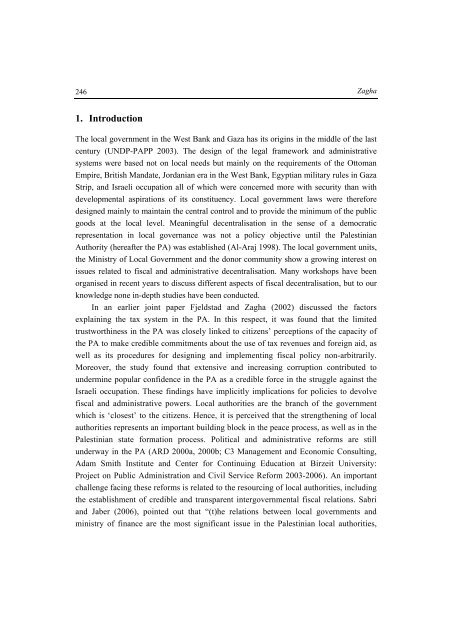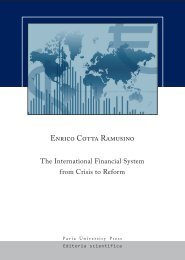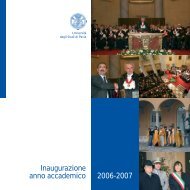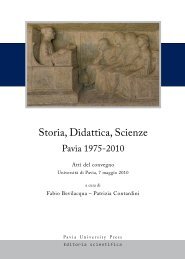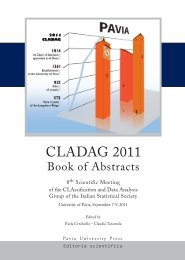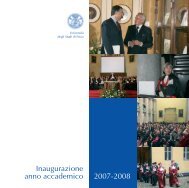The Palestinian Economy. Theoretical and Practical Challenges
The Palestinian Economy. Theoretical and Practical Challenges
The Palestinian Economy. Theoretical and Practical Challenges
You also want an ePaper? Increase the reach of your titles
YUMPU automatically turns print PDFs into web optimized ePapers that Google loves.
246<br />
Zagha<br />
1. Introduction<br />
<strong>The</strong> local government in the West Bank <strong>and</strong> Gaza has its origins in the middle of the last<br />
century (UNDP-PAPP 2003). <strong>The</strong> design of the legal framework <strong>and</strong> administrative<br />
systems were based not on local needs but mainly on the requirements of the Ottoman<br />
Empire, British M<strong>and</strong>ate, Jordanian era in the West Bank, Egyptian military rules in Gaza<br />
Strip, <strong>and</strong> Israeli occupation all of which were concerned more with security than with<br />
developmental aspirations of its constituency. Local government laws were therefore<br />
designed mainly to maintain the central control <strong>and</strong> to provide the minimum of the public<br />
goods at the local level. Meaningful decentralisation in the sense of a democratic<br />
representation in local governance was not a policy objective until the <strong>Palestinian</strong><br />
Authority (hereafter the PA) was established (Al-Araj 1998). <strong>The</strong> local government units,<br />
the Ministry of Local Government <strong>and</strong> the donor community show a growing interest on<br />
issues related to fiscal <strong>and</strong> administrative decentralisation. Many workshops have been<br />
organised in recent years to discuss different aspects of fiscal decentralisation, but to our<br />
knowledge none in-depth studies have been conducted.<br />
In an earlier joint paper Fjeldstad <strong>and</strong> Zagha (2002) discussed the factors<br />
explaining the tax system in the PA. In this respect, it was found that the limited<br />
trustworthiness in the PA was closely linked to citizens’ perceptions of the capacity of<br />
the PA to make credible commitments about the use of tax revenues <strong>and</strong> foreign aid, as<br />
well as its procedures for designing <strong>and</strong> implementing fiscal policy non-arbitrarily.<br />
Moreover, the study found that extensive <strong>and</strong> increasing corruption contributed to<br />
undermine popular confidence in the PA as a credible force in the struggle against the<br />
Israeli occupation. <strong>The</strong>se findings have implicitly implications for policies to devolve<br />
fiscal <strong>and</strong> administrative powers. Local authorities are the branch of the government<br />
which is ‘closest’ to the citizens. Hence, it is perceived that the strengthening of local<br />
authorities represents an important building block in the peace process, as well as in the<br />
<strong>Palestinian</strong> state formation process. Political <strong>and</strong> administrative reforms are still<br />
underway in the PA (ARD 2000a, 2000b; C3 Management <strong>and</strong> Economic Consulting,<br />
Adam Smith Institute <strong>and</strong> Center for Continuing Education at Birzeit University:<br />
Project on Public Administration <strong>and</strong> Civil Service Reform 2003-2006). An important<br />
challenge facing these reforms is related to the resourcing of local authorities, including<br />
the establishment of credible <strong>and</strong> transparent intergovernmental fiscal relations. Sabri<br />
<strong>and</strong> Jaber (2006), pointed out that “(t)he relations between local governments <strong>and</strong><br />
ministry of finance are the most significant issue in the <strong>Palestinian</strong> local authorities,


